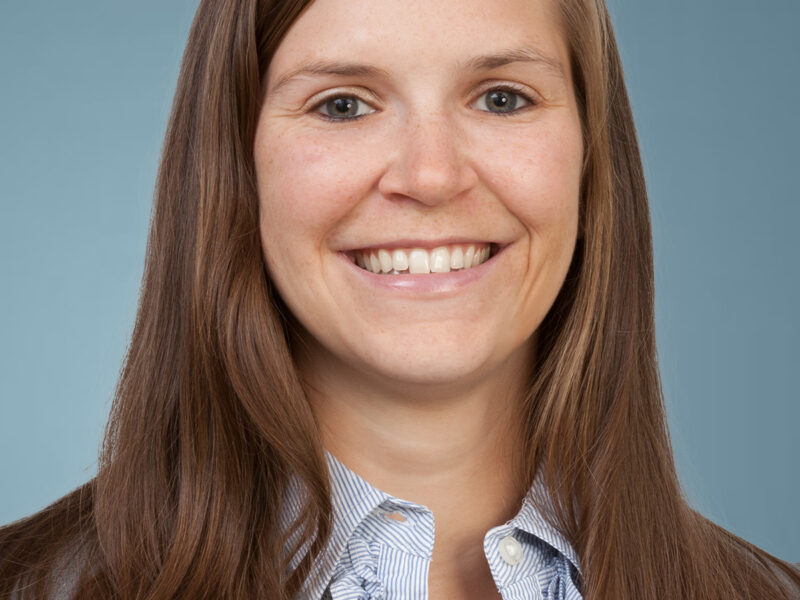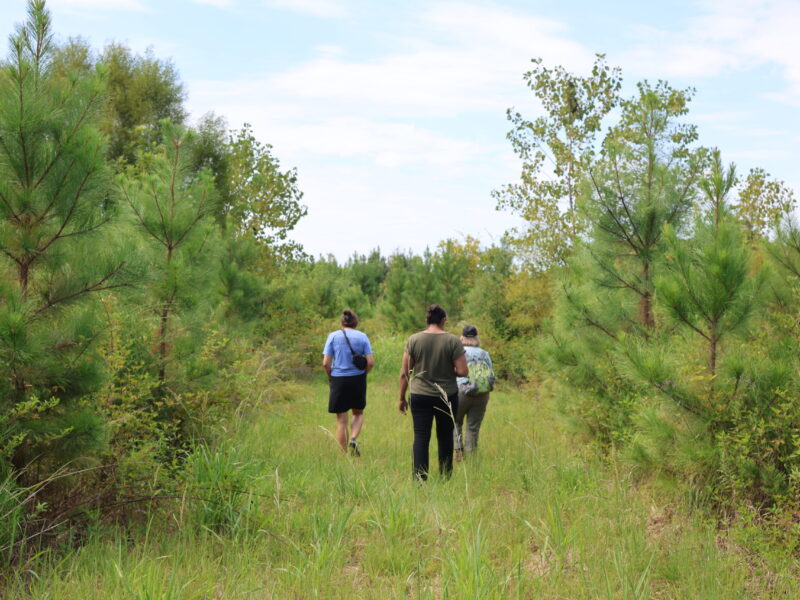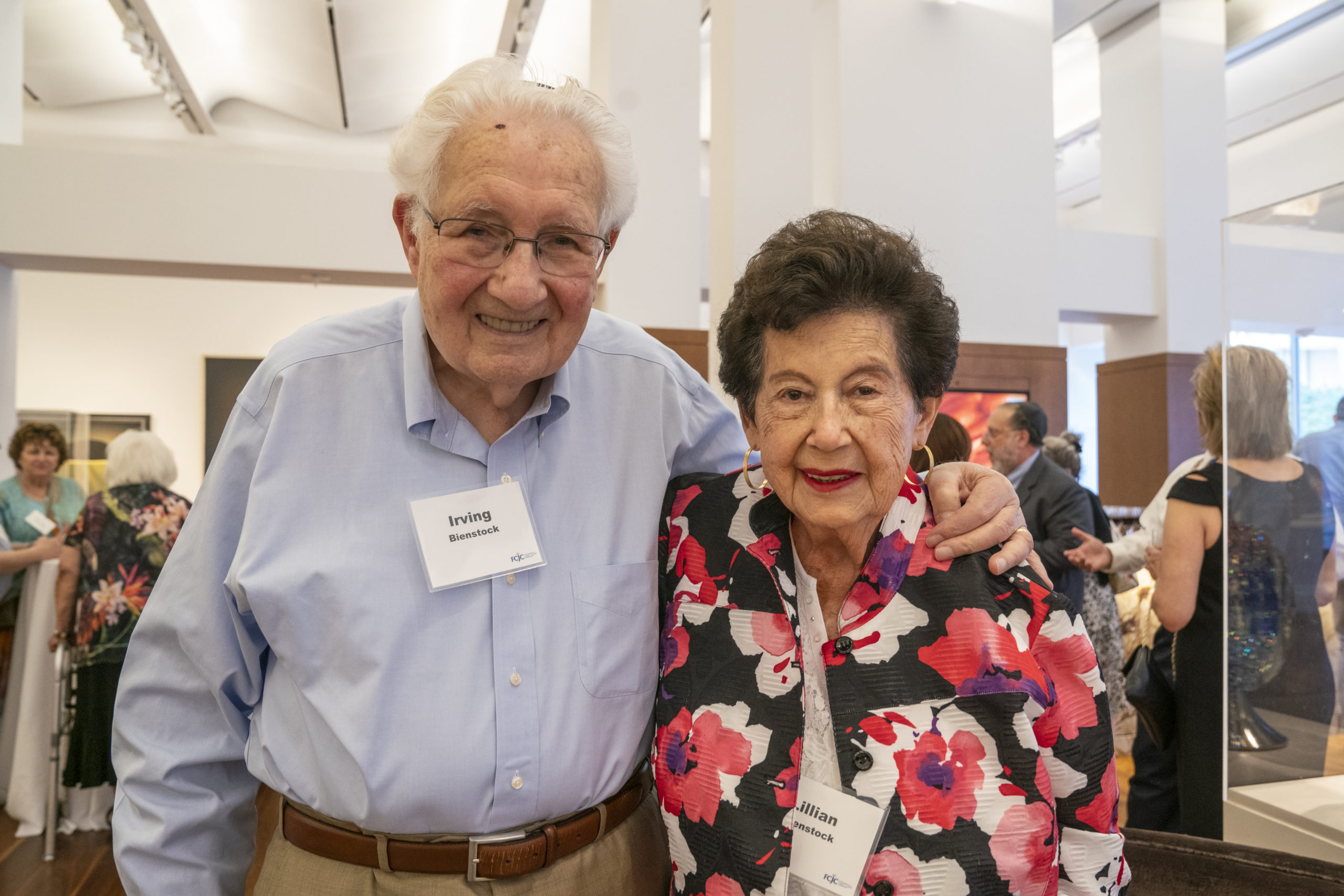
A Survivor’s Legacy
Holocaust-survivor Irving Bienstock helps keep Judaism alive by planning his future philanthropic impact
(Editor’s note: Irving Bienstock passed away in May 2025.)
Irving Bienstock survived the Nazis. He took shelter in an orphanage in Amsterdam. He made his way to the United States and reunited with his family. He met the love of his life, Lillian, at a Temple dance in Brooklyn, N.Y. His work led them to Charlotte, where they found a home, a synagogue and a community that has honored his journey.
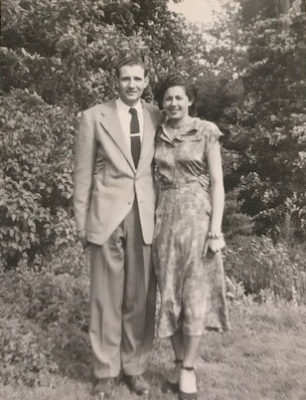
The Bienstocks were married 69 years when Lillian passed away in 2019 at age 90.
This is his life, and this is his mission: To tell the story, challenge hatred and support the causes that keep Judaism and love alive.
Irving Bienstock turns 96 on June 15, 2022. There’s no time to waste.
“I’m a very lucky human being,” he said. “I’m very fortunate that I survived the Holocaust. Once I die, no one will ever know what the Nazis did to us, what they did to me. You must speak up if you are subject to any kind of discrimination.”
A Legacy Gift
Though tempered by time, Bienstock’s voice still resonates whether he is leading prayers at Temple Israel or warning young people about the danger of judging people by their color, class, culture or faith.
Each school year, approximately 6,000 Charlotte-area middle and high school students participate in the Butterfly Project (more than 53,000 since its inception); its workshops combine storytelling and the arts to teach about human behavior through the lessons of the Holocaust.
The students visit the large, ceramic sculpture adorned with thousands of ceramic butterflies that sits in the Margaret & Lou Schwartz Butterfly Garden Holocaust Memorial at Shalom Park off Providence Road. The garden honors the 1.5 million children who perished at Hitler’s hand. There, the students hear from Irving Bienstock and Suly Chenkin, a fellow survivor, who share their personal stories, many learning about the Holocaust for the first time.
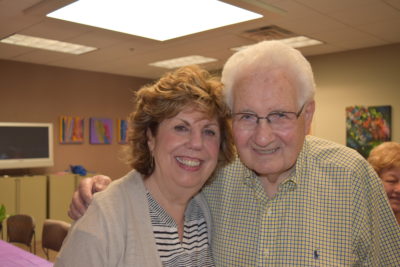
Irving Bienstock and Suly Chenkin, a fellow Holocaust survivor, have shared their personal stories with thousands of schoolchildren in the region.
Think of the arc of Bienstock’s life: This child of the Holocaust has lived long enough to tell his story to the children of 2022 – in person before the pandemic, by Zoom after.
Think of his steadfastness, telling his story again and again despite the pain and loss it brings back. Why put yourself through that? So that others don’t have to go through it themselves. “It can happen anywhere,” Bienstock said.
Now comes his latest act of remembrance.
Bienstock is leaving a legacy gift to Foundation for the Charlotte Jewish Community, designating 16 organizations to benefit from his generosity upon passing. These organizations, Jewish and secular, in the Charlotte area and beyond, work to perpetuate Judaism, fight hate and help the poor. The common denominator? All of these institutions helped shape Bienstock’s life.
“This is a huge, sentimental, heartfelt way to have a lasting impact,” said Lynne Sheffer, among Bienstock’s closest friends.
Established in 1997, Foundation for the Charlotte Jewish Community (a supporting organization of Foundation For The Carolinas) helps manage the endowments of Jewish and secular nonprofit organizations in Charlotte and beyond. They also actively help members of the Jewish community, like Bienstock, create meaningful philanthropic plans and achieve their charitable goals.
“I am very appreciative of the time and expertise provided by FCJC with the development of my legacy plan,” said Bienstock. “They simplified the process and assisted me in focusing on those charities and causes that had the greatest impacts on our lives. It is my hope that these gifts will allow these organizations to impact future generations.”
The Bienstocks’ legacy gift also expresses Irving’s love for his wife, Lillian. They were married 69 years when she passed away in 2019 at age 90. He has designated support for the Myasthenia Gravis Foundation of America, the neuromuscular disease that led to her passing.
Friends will often call Bienstock first thing in the morning to see how he’s doing. Some days he can’t talk long because he’s already put on his tefillin (a pair of black leather boxes containing Hebrew parchment scrolls) and begun his morning prayers. Everyone who knows Bienstock agrees: They’ve never met anyone who is as committed to living a Jewish life.
His story makes it so.
A Life Reborn
Bienstock grew up in Dortmund, Germany. His father, William, was an accountant. His mother, Ida, kept house. Bienstock spent a happy childhood playing soccer and marbles with the neighborhood kids.
All that changed on Nov. 9, 1938. Bienstock was 12 years old when Kristallnacht – the Night of Broken Glass – signaled the start of the Holocaust. Bienstock remembers. “Mobs of people in the street,” he told Charlotte Magazine years ago. “The synagogue burning. The Nazis coming into our home. My mother asked a policeman, ‘You’re supposed to be protecting us.’ He said, ‘You dirty Jew, we told you to get out of Germany.’”
So, he did. On Jan. 15, 1939, he boarded a train and fled alone to Holland (now known as the Netherlands). He lived with other Jewish boys in an orphanage in Amsterdam run by non-Jews. Here he experienced the kindness that the world can offer, even in the midst of evil.
A special volunteer at the orphanage allowed him to attend Sabbath services. On Sundays, she welcomed the older boys to her home for hot chocolate and homemade cake. Decades later, long after he retired, Bienstock took a computer course at Central Piedmont Community College and mastered the art of Googling. Hoping to learn more about his rescuer, he typed in her name, Gertrude Wijsmuller.
“She came up,” Bienstock said.
Wijsmuller is credited with saving the lives of more than 10,000 Jewish children during World War II, shepherding them through Holland to England. She was honored as a Righteous Gentile by Yad Vashem, the Holocaust memorial in Jerusalem. She died in 1978 at age 82. How could he show his gratitude all these years later? Bienstock helped finance a documentary on her heroic life and legacy.
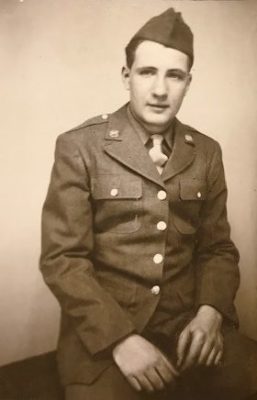
After fleeing Nazis and moving to the U.S. with his family, Irving Bienstock eventually served in the Army.
Bienstock lost most of his family to Hitler, including his grandparents, aunts, uncles and cousins. In 1940, at age 13, after 15 months in the Amsterdam orphanage, he received a visa. With his mother, Ida, and younger sister, Sylvia, he boarded a ship in Rotterdam for New York. They arrived on April 17, 1940, staring at the Statue of Liberty from the deck as they made landfall. The plan was to meet up with Bienstock’s father, William, who had already secured a visa and fled Germany because he was wanted by the Nazis. The plan worked.
A life reborn: His family settled in Brooklyn, N.Y, and, after serving in the Army, Bienstock forged a career in the textile industry. Smitten with Lillian – a beautiful daughter of immigrants who was as serious about her faith as Irving – they married in 1949.
They moved to Charlotte in 1975 when he was assigned to run a knitting machinery plant in Monroe. He joked that if Charlotte hadn’t had a kosher butcher, they might have remained in Flatbush.
Bienstock retired in 2000. His last day of work was a Friday. Three days later, he and Lillian left with friends for a trip to Eastern Europe. He has seen the world, including a 2020 trip to Israel after Lillian passed away. About the only place he won’t visit is where the journey began: Dortmund, Germany.
“And I never will.”
His Mission Continues
Bienstock’s health is good. He works out twice a week with a personal trainer at the Levine Jewish Community Center. He lives at home, with hopes of moving into Generations at Shalom Park, the culturally Jewish senior living community due to open in late 2024.
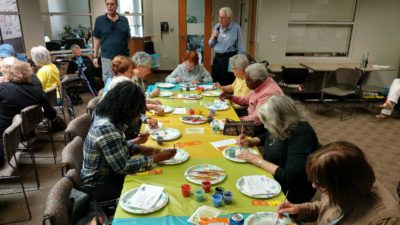
Irving Bienstock eagerly shares his life story with audiences.
His second home is Temple Israel, a sacred place to him that evokes memories of attending Sabbath services with his father in Dortmund. For Cantor Emeritus Elias Roochvarg, Bienstock evokes memories of another time. “With his courtliness and somewhat formal yet approachable demeanor,” Roochvarg said, “he represents to me one of the last vestiges of the pre-war Jewish community of Europe.”
Bienstock is still driving, though not far and not at night. Friends keep an eye on him, getting as much from the relationship as they give – Dana and Andrew Kapustin, Susan and Donald Jacobs, Lynne and Morey Sheffer, and Bob Abel. He rarely walks into Phil’s Deli or another local eatery without being greeted by friends and admirers.
It’s all a blessing, though not as powerful a blessing as the mission that sustains him.
Irving Bienstock belongs to the brotherhood and sisterhood of Holocaust survivors who are still here to speak for the 6 million Jews and 5 million others murdered by Hitler. As few as 100,000 are alive to tell us about Kristallnacht, Auschwitz and what can happen when evil is allowed to run rampant.
This is what keeps Bienstock moving forward, the opportunity to use his gentle voice to speak up, and his good fortune to spread the message long after he is gone.


